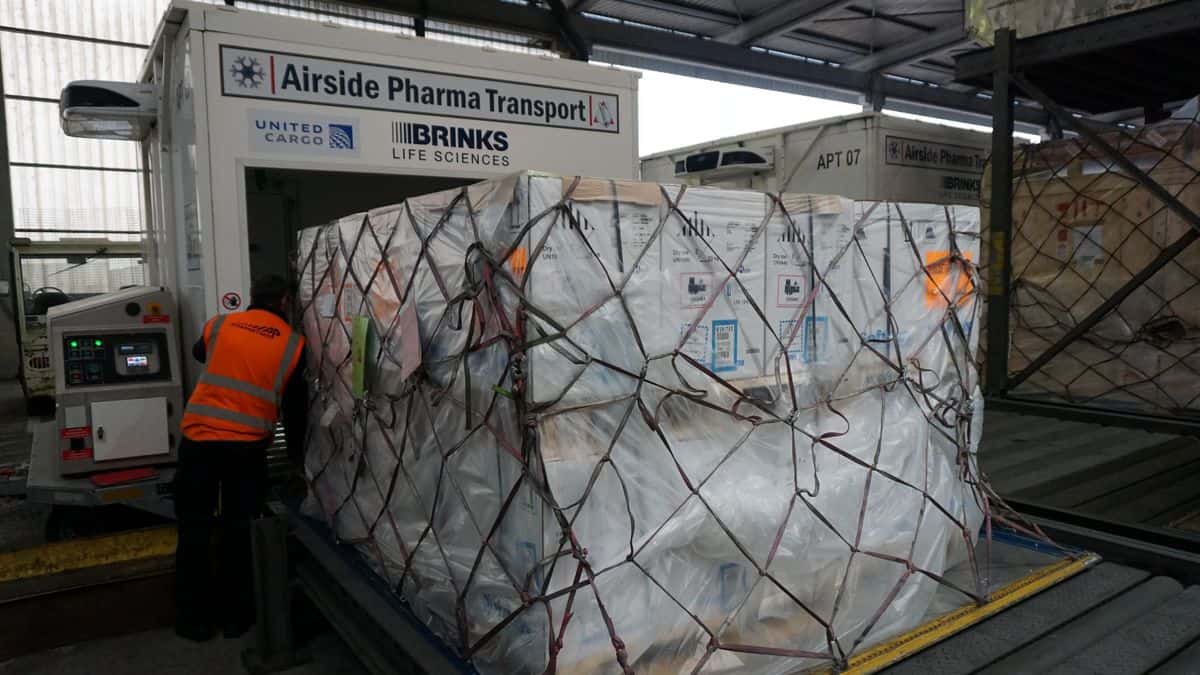Brussels Airport’s role as export hub for the Pfizer/BioNTech COVID-19 vaccine contributed to a 21% increase in cargo volume in January.
Since the end of November, airlines operating from Brussels Airport have flown to more than 40 destinations with shipments of the Pfizer vaccine, the Brussels Airport Co. said earlier this month. Many vaccines are being carried by DHL Express and its partners. Large amounts are moving on commercial passenger or passenger-freighter flights operated by Singapore Airlines, Qatar Airways, Emirates, El Al, Virgin Atlantic and United Airlines.
There are almost daily flights within the DHL Express network carrying smaller shipments of the COVID-19 vaccine. Last week, DHL and partner All Nippon Airways announced they have begun delivering Pfizer vaccines to Tokyo.
Brussels Airport was one of the first airports to make preparations for distribution of COVID vaccines and their unique cold temperature requirements. It coordinated all stakeholders in the area to streamline the process and align resources, an effort that benefited from a cargo community organization developed years earlier.
In January, Brussels posted a 21% gain in air cargo volume even as passenger traffic plummeted 84% compared to the first month of 2020.
Many European and other airports have experienced a downturn in cargo business since the pandemic, but Brussels has ridden a wave of growth from all-cargo and express delivery carriers, as well as cargo-only flights operated by passenger airlines.
In January, the amount of cargo carried by full freighters at Brussels Airport increased 73% year-over-year, while tonnage for express carriers grew 37%, more than making up for the lost volume carried by passenger jets. And airport-to-airport truck volumes increased 10% after several months of contraction. The total volume of goods handled at Brussels Airport grew 18% in January to 58,311 metric tons.
The airport said imports from Asia and North America, and exports to Asia, were strong and that it saw a positive effect on throughput from Brexit.
Last year, Brussels Airport reported 2.2% growth in cargo as passenger traffic plunged 74%.
The airport is operated by Brussels Airport Co., in which the government of Belgium has a 25% stake.
Click here for more FreightWaves/American Shipper stories by Eric Kulisch.
RELATED NEWS:
Hong Kong, Amsterdam airports lost cargo business in 2020
Airport cargo communities collaborate to optimize vaccine transport
Brussels Airport bucks trend with June rise in cargo volumes












